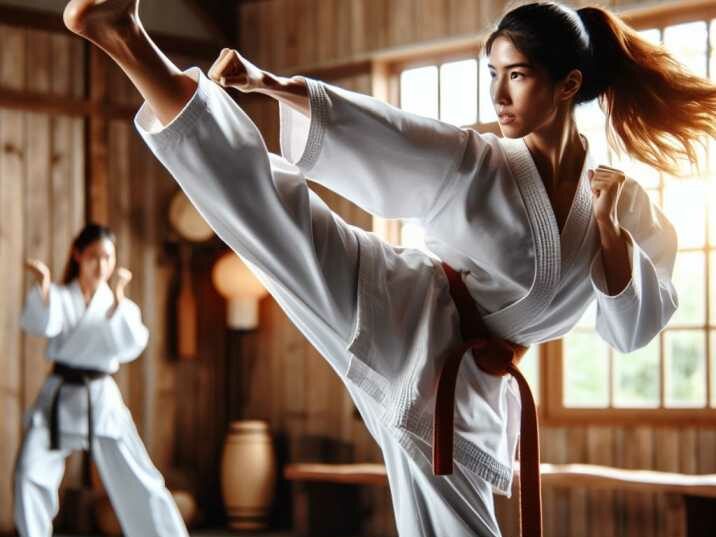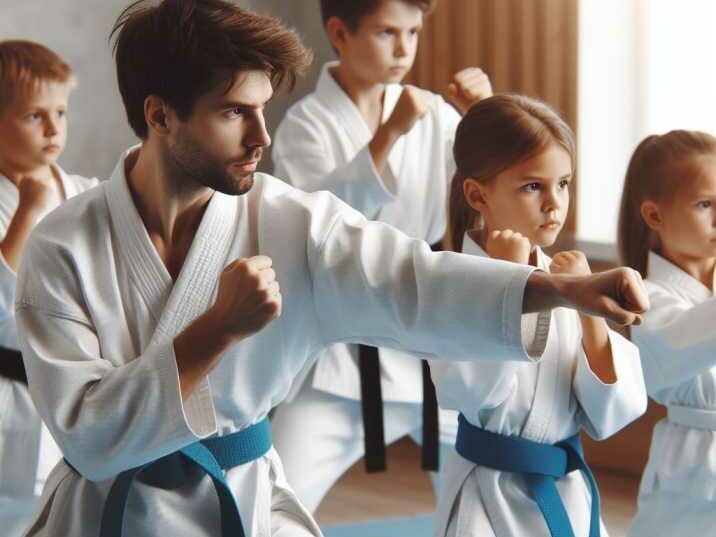Introduction:
Table of Contents
Karate is a popular martial art that originated in Okinawa, Japan and has gained immense popularity worldwide. It is known for its disciplined training methods, focus on self-defense, and promotion of physical and mental well-being. However, like any physical activity, practicing Karate comes with its own set of risks and considerations.

Potential Risks of Karate Practice:
1. Physical Injuries:
Karate involves a series of dynamic movements, strikes, and blocks, which can put strain on the muscles and joints. Injuries such as sprains, strains, and bruises are common, especially for beginners who may not have developed proper technique and control.
2. Impact on Growth Plates:
For children and adolescents who are still growing, the repetitive impact of Karate movements can potentially affect the growth plates in their bones. It’s essential for young practitioners to train under the supervision of experienced instructors who can ensure proper form and technique to minimize the risk of injury.
3. Risk of Concussions:
While Karate is not a full-contact sport like boxing or MMA, there is still a risk of concussions from accidental blows to the head during sparring or competitions. It’s crucial for practitioners to wear appropriate protective gear, such as headgear and mouthguards, to reduce the risk of head injuries.
4. Overuse Injuries:
Consistent training in Karate can lead to overuse injuries, particularly in the wrists, elbows, and knees. Repetitive motions like punching and kicking can strain the joints and soft tissues over time, leading to conditions such as tendonitis and bursitis.
5. Psychological Impact:
While Karate emphasizes discipline, self-control, and respect, the competitive nature of the sport can sometimes lead to psychological stress and pressure, especially for young athletes. It’s important for instructors to create a supportive and nurturing environment that prioritizes mental well-being alongside physical development.

Table of Information Risks of Karate Practice:
| Risk Factor | Description |
|---|---|
| Physical Injuries | Common injuries include sprains, strains, and bruises from dynamic movements and strikes. |
| Impact on Growth Plates | Repetitive impact may affect the growth plates in children and adolescents, requiring careful supervision. |
| Risk of Concussions | Accidental blows to the head during sparring or competitions can pose a risk of concussions. |
| Overuse Injuries | Consistent training can lead to overuse injuries such as tendonitis and bursitis in the joints and soft tissues. |
| Psychological Impact | While emphasizing discipline and respect, the competitive nature of Karate can sometimes lead to psychological stress. |
Conclusion:
In Conclusion risks of Karate practice, While Karate offers numerous benefits for physical fitness, self-defense, and personal development, it’s essential to be aware of the potential risks associated with practicing Karate. By training under the guidance of experienced instructors, using proper protective gear, and listening to your body’s signals, you can minimize the risk of injury and enjoy all the rewards that Karate has to offer.
Frequently Asked Questions (FAQs):
- Is Karate Safe for Children?
- When taught properly and under the supervision of experienced instructors, Karate can be safe for children. It’s essential to start with age-appropriate classes and prioritize proper technique and safety measures.
- Can Karate Cause Long-Term Damage to Joints?
- While Karate involves dynamic movements and impact, practicing with proper form and technique can help minimize the risk of long-term joint damage. It’s crucial to listen to your body and avoid overtraining.
- Are Concussions Common in Karate?
- While not as common as in full-contact sports, concussions can still occur in Karate, especially during sparring or competitions. Wearing protective gear and practicing control and restraint can help reduce the risk.
- How Can I Prevent Injuries in Karate?
- To prevent injuries in Karate, it’s essential to warm up properly before training, use proper technique and form, wear appropriate protective gear, and listen to your body’s signals to avoid overexertion.
- Is Karate Suitable for Everyone?
- Karate can be suitable for people of all ages and fitness levels, but it’s essential to consult with a physician before starting any new physical activity, especially if you have pre-existing medical conditions or injuries.


